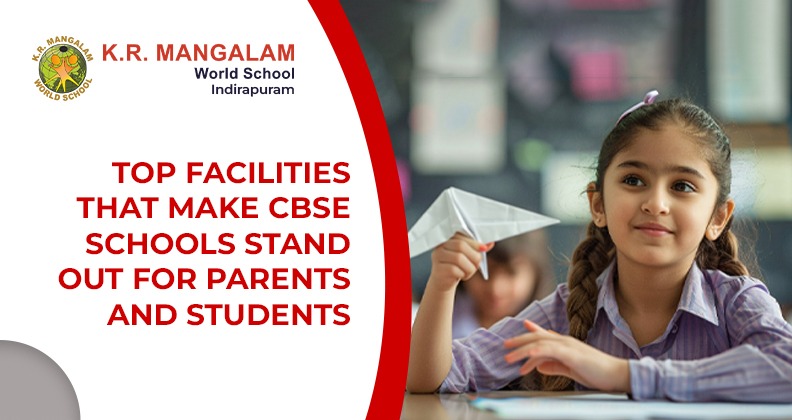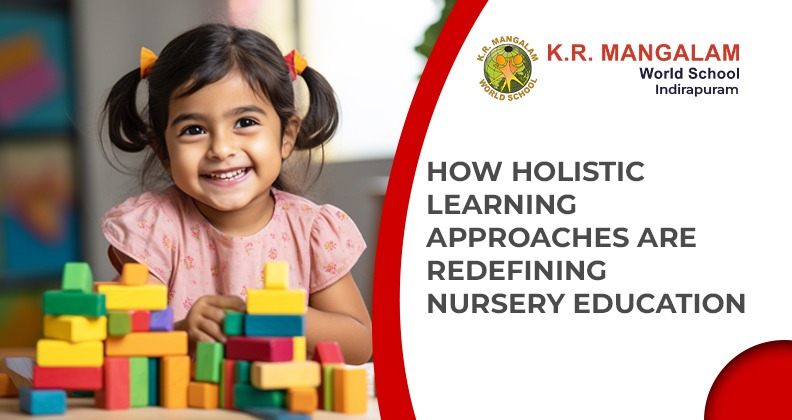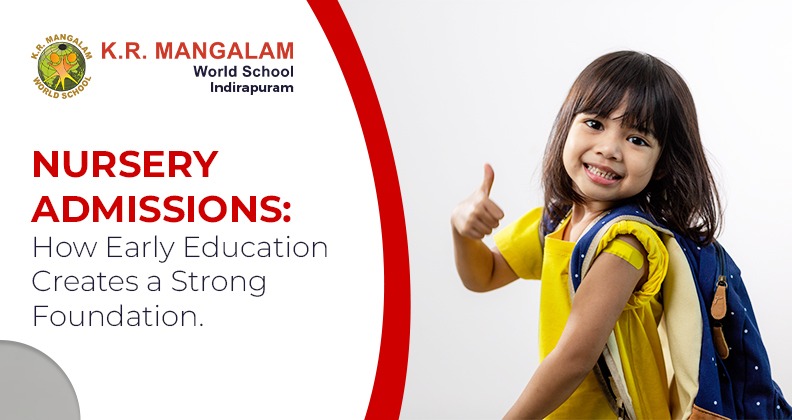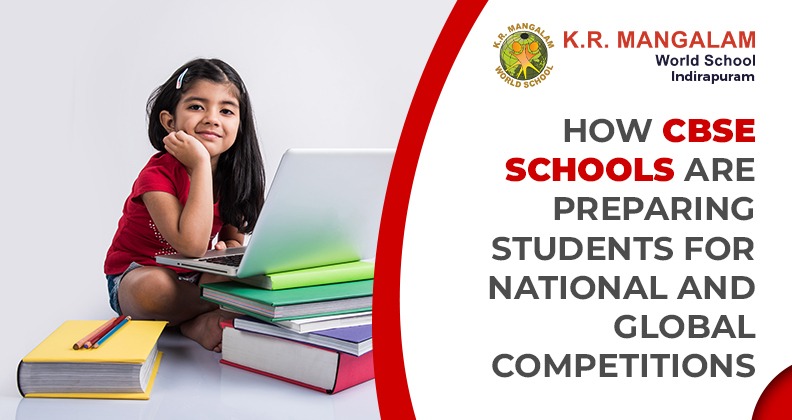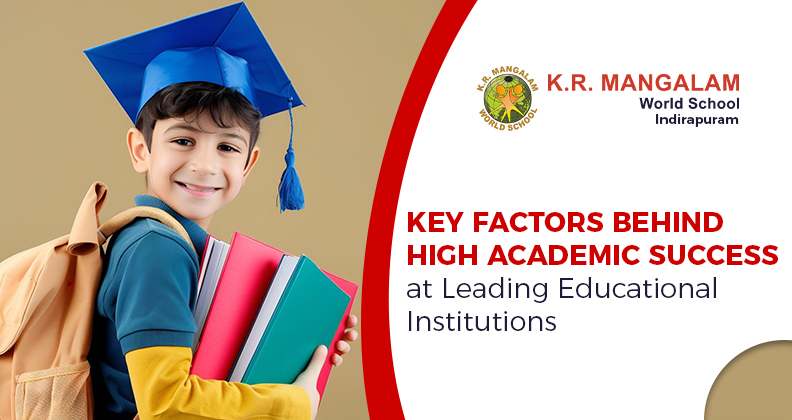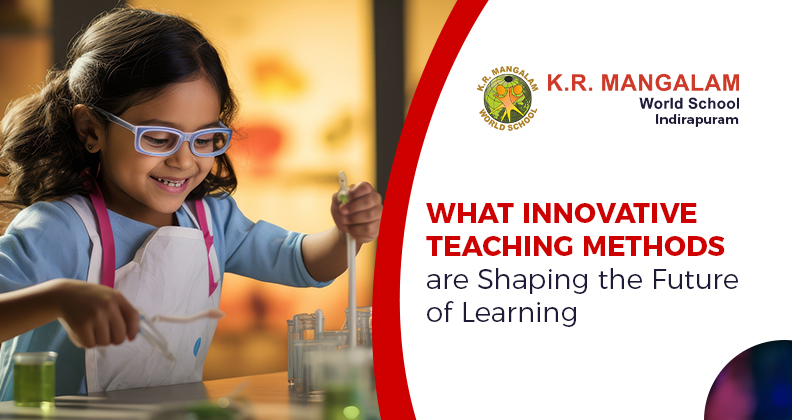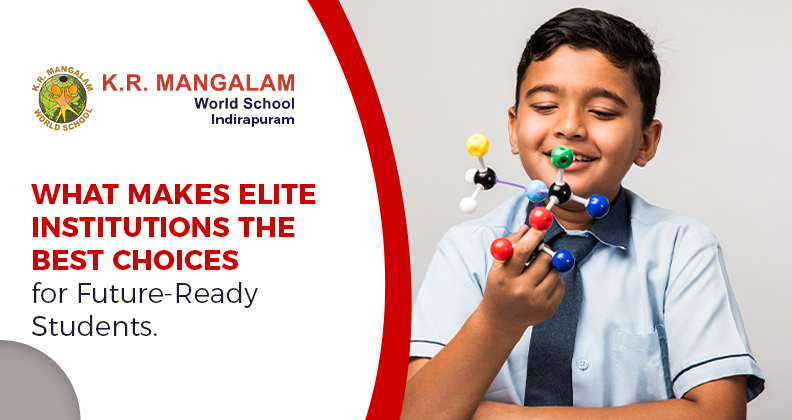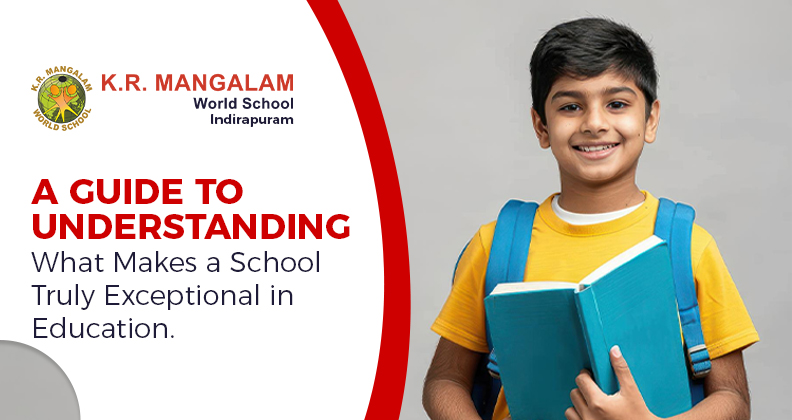Introduction:
Selecting the right school for your child is a crucial decision that shapes their academic growth, personality, and future opportunities. At K.R. Mangalam Indirapuram, the School in Indirapuram Ghaziabad where parents today look beyond traditional teaching methods and focus on institutions that provide a holistic, world-class learning environment. Among the many options, CBSE schools have emerged as a preferred choice due to their structured curriculum, innovative learning techniques, and future-ready facilities.
Families looking for reputed schools often prioritize institutions that combine academic excellence with comprehensive facilities designed to nurture all-round development. This article explores the top features that make CBSE schools stand out for both parents and students, and why these facilities are vital for shaping future-ready learners.
About Us:
At K.R. Mangalam, Indirapuram, modern infrastructure meets heart-centered education. Classrooms are tech-enabled, complemented by vibrant skill studios, innovation zones, sports courts, and creative hubs for music and drama. Children hone talents through structured arts, athletics, chess, roller skating, and well-planned outdoor games. Large auditoriums and open play areas host engaging events—cultural fests, science fairs, parent workshops—that foster community and learning beyond textbooks. Safety is paramount; smart security systems and thoughtful support services ensure peace of mind. Truly, our comprehensive facilities position us among the leading schools, offering a balanced ecosystem where academics, creativity, wellness, and safety coexist harmoniously.
-
State-of-the-Art Classrooms and Learning Spaces
Modern CBSE schools prioritize advanced classroom infrastructure to enhance learning experiences. Smart classrooms equipped with interactive boards, digital tools, and audio-visual resources make lessons more engaging and accessible.
Key features include:
- High-quality lighting and ventilation for comfortable learning.
- Ergonomically designed furniture suitable for long study hours.
- Interactive whiteboards and projectors for visual learning.
- Technology-enabled teaching to cater to diverse learning styles.
These modern setups not only support the CBSE curriculum but also prepare students for a tech-driven world.
-
Well-Equipped Science and Innovation Labs
Science, technology, engineering, and mathematics (STEM) are critical components of modern education. CBSE schools invest in fully equipped science laboratories and innovation hubs to encourage experimentation and research-based learning.
Facilities often include:
- Physics, chemistry, and biology labs with updated instruments.
- Robotics and coding labs to foster innovation.
- 3D printers and maker spaces for hands-on projects.
Such practical exposure strengthens conceptual understanding and nurtures future innovators.
-
Comprehensive Library and Digital Resources
A well-stocked library remains the heart of any quality school. CBSE institutions provide extensive libraries with:
- Fiction and non-fiction collections to promote reading habits.
- Dedicated spaces for quiet study and group learning.
- Access to digital e-libraries and research portals.
Students can explore global literature, prepare for competitions, and develop critical thinking skills through these resources.
-
Sports and Physical Education Infrastructure
Physical development is as important as academic growth. CBSE schools often feature:
- Spacious playgrounds for outdoor sports such as football, cricket, and athletics.
- Indoor sports facilities for badminton, table tennis, and chess.
- Qualified trainers to promote fitness and team spirit.
Regular sports activities teach discipline, resilience, and leadership—key attributes for lifelong success.
-
Arts, Music, and Performing Spaces
Creative expression plays an essential role in a child’s overall development. CBSE schools provide specialized spaces such as:
- Music rooms with modern instruments.
- Art studios for painting, sculpture, and craftwork.
- Auditoriums for drama, debate, and cultural events.
These facilities help students discover their creative potential and gain confidence in public performances.
-
Technology Integration for Future-Ready Learning
In an era of rapid digital transformation, CBSE schools emphasize technology-enabled education. Facilities include:
- High-speed internet and Wi-Fi-enabled campuses.
- AI-based learning platforms and digital assessments.
- Computer labs with updated hardware and software.
This focus ensures students develop essential 21st-century skills like coding, digital literacy, and research proficiency.
-
Focus on Safety and Security
Parents prioritize safety when choosing a school. Leading CBSE schools maintain:
- CCTV surveillance across campus.
- Secure entry and exit protocols with visitor management systems.
- Child protection policies and trained safety personnel.
Regular safety drills and awareness programs further reinforce a culture of security and trust.
-
Transportation and Accessibility
Efficient transportation facilities ensure students have a safe and comfortable commute. Features include:
- GPS-enabled buses for real-time tracking.
- Trained drivers and attendants for each route.
- Age-appropriate seating and safety equipment.
This convenience reduces stress for working parents and ensures punctuality.
-
Wellness and Medical Support
CBSE schools recognize the importance of physical and mental well-being. Facilities often comprise:
- On-campus medical rooms with trained nurses.
- Regular health check-ups and vaccination drives.
- Wellness programs including yoga, mindfulness, and counseling.
Such initiatives ensure students are physically fit and emotionally balanced.
-
Cafeteria and Nutrition Programs
Healthy meals are integral to student productivity and focus. CBSE schools provide:
- Hygienic cafeterias serving nutritious, balanced meals.
- Diet plans designed in consultation with nutritionists.
- Awareness campaigns promoting healthy eating habits.
These programs create a positive relationship with food from an early age.
-
Extracurricular and Co-Curricular Opportunities
Beyond academics, CBSE schools emphasize activities that build leadership, creativity, and collaboration. These include:
- Clubs for debate, coding, environment, and entrepreneurship.
- Inter-house competitions to boost healthy rivalry and teamwork.
- Field trips and excursions for experiential learning.
Such opportunities enrich a child’s personality and provide exposure beyond the classroom.
-
Parent-Teacher Collaboration and Communication
Transparent communication between schools and parents ensures consistent progress. Facilities include:
- Parent portals for attendance, performance updates, and announcements.
- Regular parent-teacher meetings (PTMs).
- Interactive sessions and workshops for parenting guidance.
This collaborative approach strengthens trust and improves learning outcomes.
-
Sustainable and Green Campuses
Environmental awareness is a growing priority in education. Many CBSE schools incorporate:
- Rainwater harvesting systems.
- Solar-powered infrastructure.
- Green gardens and eco-clubs to teach sustainability.
Such initiatives not only conserve resources but also instill eco-conscious habits in students.
-
Global Exposure and Exchange Programs
To prepare students for a globalized world, CBSE schools introduce:
- International exchange programs.
- Foreign language classes.
- Participation in global competitions and Model UN conferences.
These experiences expand students’ worldviews and enhance their cross-cultural competence.
-
Special Education and Inclusive Learning
Inclusivity is central to the CBSE philosophy. Facilities for students with diverse learning needs include:
- Resource rooms with specialized educators.
- Individualized learning plans (ILPs).
- Sensory-friendly spaces to support children with special requirements.
This ensures every child receives equal opportunities to succeed.
-
Focus on Emotional Intelligence
Emotional development is as important as academic achievement. CBSE schools conduct:
- Workshops on empathy, resilience, and self-regulation.
- Peer mentoring programs.
- Counseling sessions to address stress and anxiety.
Students thus develop strong interpersonal skills and emotional stability from an early age.
-
Career Guidance and Future Planning
Many CBSE schools introduce career counseling at an early stage to guide students toward meaningful academic and professional paths. Facilities include:
- Aptitude testing and personality assessments.
- Career counseling sessions with experts.
- Exposure to emerging fields such as AI, entrepreneurship, and sustainability.
This early direction empowers students to make informed decisions about their future.
Conclusion:
Parents seeking reputed schools often prioritize institutions that offer a rich blend of academics, modern infrastructure, safety, and extracurricular opportunities. CBSE schools excel in this regard by providing comprehensive facilities designed to nurture every dimension of a child’s growth—intellectual, physical, emotional, and social.
From smart classrooms and advanced laboratories to wellness programs and global exposure, these schools ensure that students are not only prepared for academic success but also equipped with the skills needed to thrive in an ever-changing world. By focusing on holistic development and future-ready facilities, CBSE institutions continue to set benchmarks in quality education.
FAQs:
Q. 1: What are the most sought-after facilities in CBSE schools today?
Ans: State-of-the-art labs, digital classrooms, safe transportation, sports complexes, and libraries are key highlights.
Q. 2: How does the infrastructure support learning?
Ans: Modern classrooms, STEM labs, and innovation hubs encourage exploration and practical application of concepts.
Q. 3: Are there dedicated spaces for extracurriculars?
Ans: Yes, dedicated art studios, music rooms, auditoriums, and sports courts enable students to excel beyond academics.
Q. 4: What safety measures are prioritized?
Ans: 24/7 CCTV surveillance, verified transport staff, and secure campus policies ensure a safe environment.
Q. 5: Do parents get access to school facilities?
Ans: Parents are invited to participate in open houses, annual events, and parent–teacher sessions to experience the school culture.
Q. 6: Are these facilities aligned with global standards?
Ans: Yes, the infrastructure is designed to meet both national curriculum requirements and global benchmarks.


